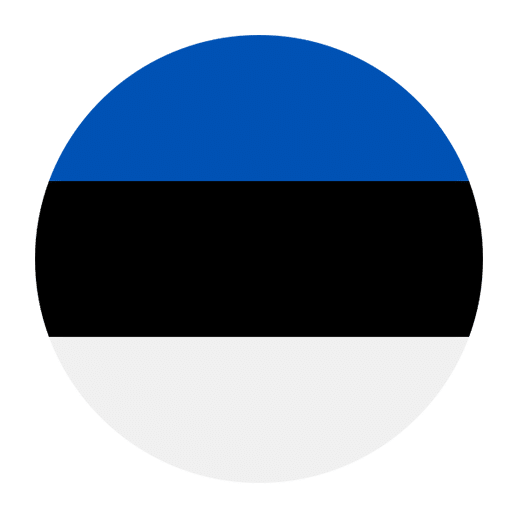Visiting a doctor in a foreign country can be a daunting experience, especially if you are not familiar with the language. If you are planning to visit Estonia or are currently living there, knowing some basic phrases in Estonian can make your medical visits smoother and less stressful. This article aims to provide you with essential phrases for visiting a doctor in Estonian, helping you to communicate your symptoms, understand the doctor’s advice, and navigate through your medical appointments more confidently.
Making an Appointment
The first step in visiting a doctor is making an appointment. Here are some phrases that can help you with this process:
– **I’d like to make an appointment.** – Ma sooviksin aja kinni panna.
– **Is there an available time slot?** – Kas on vaba aega?
– **I need to see a doctor.** – Ma pean arsti juurde minema.
– **It’s urgent.** – See on kiireloomuline.
– **Can I see a doctor today?** – Kas ma saaksin täna arsti juurde minna?
Understanding the response:
– **Yes, there is an available time slot at [time].** – Jah, on vaba aeg kell [aeg].
– **No, we are fully booked today.** – Ei, me oleme täna täielikult broneeritud.
– **Please wait.** – Palun oodake.
– **Can you come tomorrow?** – Kas saate homme tulla?
Upon Arrival
When you arrive at the doctor’s office, you will need to check in and provide some information.
– **I have an appointment.** – Mul on aeg kinni pandud.
– **My name is [your name].** – Minu nimi on [sinu nimi].
– **I have an appointment at [time].** – Mul on aeg kell [aeg].
– **Where should I wait?** – Kus ma peaksin ootama?
– **Do I need to fill out any forms?** – Kas ma pean täitma mõnda vormi?
Describing Your Symptoms
Once you are with the doctor, you will need to describe your symptoms. Here are some useful phrases:
– **I have a headache.** – Mul on peavalu.
– **I have a fever.** – Mul on palavik.
– **I feel nauseous.** – Mul on iiveldus.
– **I have a sore throat.** – Mul on kurguvalu.
– **I have a cough.** – Mul on köha.
– **I have a runny nose.** – Mul on nohu.
– **I am having trouble breathing.** – Mul on hingamisraskused.
– **I have pain in my [body part].** – Mul on valu [kehaosa].
– **I have been feeling this way for [duration].** – Olen end nii tundnud [kestus].
– **I have allergies.** – Mul on allergiad.
– **I feel dizzy.** – Mul on peapööritus.
– **I have been vomiting.** – Ma olen oksendanud.
– **I have diarrhea.** – Mul on kõhulahtisus.
Medical History and Lifestyle
The doctor might ask you about your medical history and lifestyle. Here are some possible questions and responses:
– **Do you have any chronic illnesses?** – Kas teil on kroonilisi haigusi?
– **Yes, I have [illness].** – Jah, mul on [haigus].
– **No, I don’t.** – Ei, mul ei ole.
– **Are you on any medication?** – Kas te võtate mingeid ravimeid?
– **Yes, I am taking [medication].** – Jah, ma võtan [ravimid].
– **No, I’m not.** – Ei, ma ei võta.
– **Do you smoke?** – Kas te suitsetate?
– **Yes, I do.** – Jah, ma suitsetan.
– **No, I don’t.** – Ei, ma ei suitseta.
– **Do you drink alcohol?** – Kas te tarvitate alkoholi?
– **Yes, I do.** – Jah, ma tarvitan.
– **No, I don’t.** – Ei, ma ei tarvita.
– **Do you have any allergies?** – Kas teil on allergiaid?
– **Yes, I am allergic to [allergen].** – Jah, ma olen allergiline [allergeen].
– **No, I don’t.** – Ei, mul ei ole.
Understanding the Doctor’s Instructions
After discussing your symptoms, the doctor will provide you with instructions or a diagnosis. Here are some phrases to help you understand and respond:
– **What is my diagnosis?** – Mis on minu diagnoos?
– **What should I do next?** – Mida ma peaksin järgmisena tegema?
– **Do I need any tests?** – Kas ma pean tegema mingeid teste?
– **Do I need a prescription?** – Kas ma vajan retsepti?
– **How should I take this medication?** – Kuidas ma peaksin seda ravimit võtma?
– **Are there any side effects?** – Kas on mingeid kõrvaltoimeid?
– **How long will it take to recover?** – Kui kaua taastumine aega võtab?
– **Should I avoid any activities?** – Kas ma peaksin vältima mingeid tegevusi?
– **When should I come back for a follow-up?** – Millal ma peaksin tulema järelkontrolli?
Common Medical Terms
Here are some common medical terms that might come in handy during your visit:
– **Doctor** – Arst
– **Nurse** – Õde
– **Hospital** – Haigla
– **Clinic** – Kliinik
– **Pharmacy** – Apteek
– **Prescription** – Retsept
– **Medicine** – Ravim
– **Pain** – Valu
– **Fever** – Palavik
– **Infection** – Infektsioon
– **Allergy** – Allergia
– **Emergency** – Hädaolukord
Emergency Situations
In case of an emergency, it is crucial to know how to communicate your situation effectively:
– **I need help!** – Ma vajan abi!
– **It’s an emergency.** – See on hädaolukord.
– **Call an ambulance!** – Kutsuge kiirabi!
– **I’m in pain.** – Mul on valu.
– **I can’t breathe.** – Ma ei saa hingata.
– **I feel very weak.** – Ma tunnen end väga nõrgana.
– **I think I am having a heart attack.** – Ma arvan, et mul on südameatakk.
– **I have been in an accident.** – Ma olen olnud õnnetuses.
At the Pharmacy
After your doctor’s visit, you might need to go to a pharmacy to get your medication. Here are some phrases to help you:
– **I need to fill a prescription.** – Mul on vaja retsepti täita.
– **Do you have [medication]?** – Kas teil on [ravim]?
– **How much does this cost?** – Kui palju see maksab?
– **How should I take this medication?** – Kuidas ma peaksin seda ravimit võtma?
– **Are there any side effects?** – Kas on mingeid kõrvaltoimeid?
– **Can I take this with food?** – Kas ma võin seda koos toiduga võtta?
Understanding the pharmacist’s instructions:
– **Take one tablet twice a day.** – Võtke üks tablett kaks korda päevas.
– **Take with water.** – Võtke koos veega.
– **Store in a cool, dry place.** – Hoidke jahedas, kuivas kohas.
– **Avoid alcohol while taking this medication.** – Vältige alkoholi tarvitamist selle ravimi võtmise ajal.
– **Do not exceed the recommended dose.** – Ärge ületage soovitatavat annust.
Conclusion
Knowing these essential phrases for visiting a doctor in Estonian can significantly ease your experience and help you get the medical attention you need. While it is always helpful to have a translator or a language app handy, understanding and being able to communicate your symptoms, medical history, and needs in Estonian can make a world of difference. Practice these phrases, and you’ll be better prepared for any medical situations you might encounter in Estonia.
Remember, your health is important, and effective communication with healthcare providers is key to receiving the best care possible. Don’t hesitate to ask for clarification if you don’t understand something, and always follow the doctor’s advice to the best of your ability. Safe travels and stay healthy!

